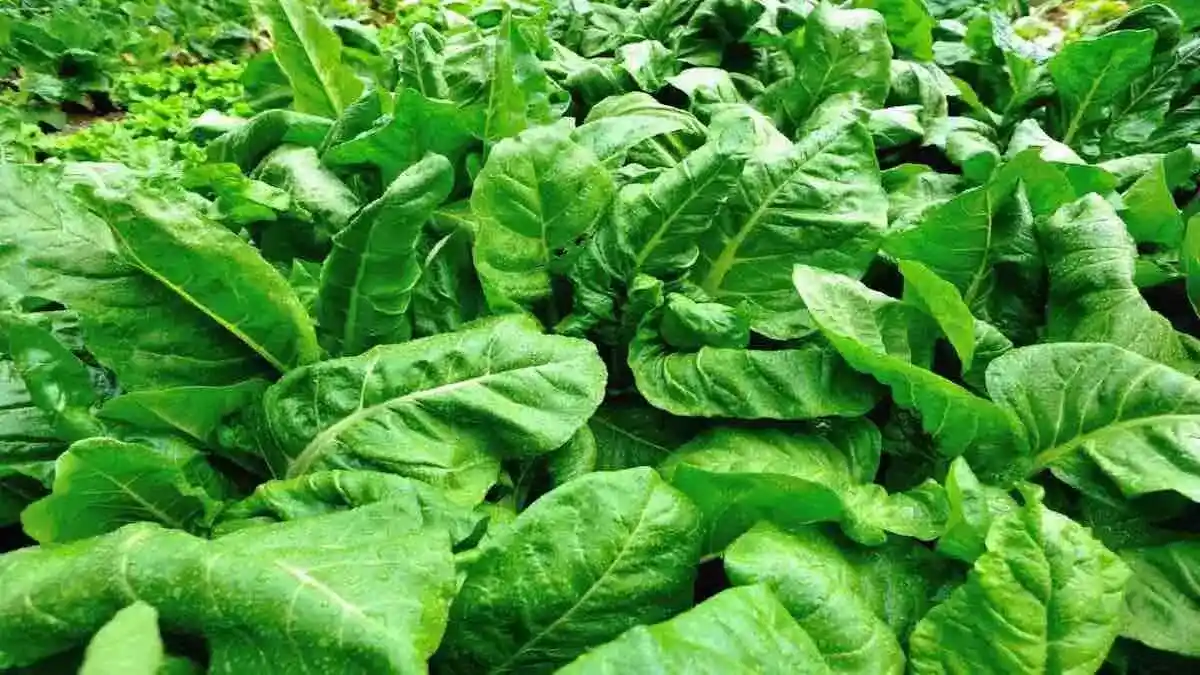Table of contents
Introducing Perpetual Spinach
Growing perpetual spinach is easy and we have a few helpful tips that will assist you to grow this nutritious plant in the tropics.
Is Perpetual spinach the same as Swiss Chard?
Perpetual spinach is also known as Chard, Swiss Chard or Silverbeet. Furthermore, there are actually three main types of chard, white-stemmed, coloured, and perpetual. The perpetual variety tastes like spinach and is hence referred to as perpetual spinach.
Growing Perpetual Spinach from Seed
Time needed: 3 minutes
How to grow perpetual spinach from seed.
- Prepare
Prepare the soil. You need moist, fertile soil, so work in a slow release organic fertiliser if needed.
- Sow seeds
Water before sowing so the soil is moist. Sow seeds in rows 15cm (7in) apart. Plant seeds 1-2cm (1/2in) deep.
- Water
Water regularly enough to keep the soil moist.
- Germinate and Thin
Seeds should germinate within 10 days of sowing.
- Harvest
Plants should be ready to harvest 50-65 days from seed. Also remember, if you pick in the early morning, rinse and eat fresh, you will enjoy a more full flavour from your chard.
- Weed
Weed regularly to stop invaders stealing nutrients from your plants. In addition, using mulch will help keep the weeds down and keep the soil moist (saving you money on water as well).
Growing Perpetual Spinach in Australia
Perpetual spinach is the best chard to grow in the tropics. So plant it in full sun and make sure your plants are well-watered.
This is a ‘cut and come again’ plant which will crop almost all year round (hence the name perpetual).
Growing conditions for perpetual spinach
Position your plants in full sun. Work compost and well-rotted manure into the soil before planting. Chard is a heavy feeder and thrives in soil that is high in nitrogen.
Fertilising
Apply a slow release fertiliser to the soil when planting. A nitrogen rich liquid fertiliser applied once a month is a great way to feed your chard on an ongoing basis. Indeed this will give your plant a nice growth spurt.
Harvesting
Start harvesting from the outside. Cut leaves 3 to 5cm (1 or 2 inches) from the base. Make sure you rinse the leaves thoroughly before consuming.
Watering
Water chard regularly to keep them healthy and avoid the leaves becoming too bitter.
Perpetual spinach needs about 2.5cm (1in) of water each week, so if the soil feels dry, you know there is a need to increase your watering. Furthermore, mulching around the plants can conserve water and help with pest management.

Pests and Diseases
The pests of perpetual spinach include caterpillars, slugs, aphids and mites. These can do a lot of damage. However, regular application of white oil can help address these pests. White oil is an effective organic pesticide that you can make at home.
Neem oil also does a great job. It is organic as well and does not kill beneficial insects with hard shells or bees.
Growing Perpetual Spinach in Pots
Select pots that are 6-12 inches (15-30 cm) across. Fill with soil that has been amended to aid in water retention and place in full sun.
When your plants are 2 inches (5 cm), thin them to 2-3 inches (5-8 cm) apart.
Perpetual Spinach Companion Planting
Planting the right variety of plants to grow with your spinach can lead to benefits all around. Spinach companion plants are much more than something to just help your spinach grow. They are useful for culinary purposes and can brighten up your space with a bounty of different scents and colours.
Good companion plants for spinach include snap peas, kale, bok choy, lettuce and tomatoes.
Perpetual Spinach Benefits
Growing perpetual spinach is worth the effort. Indeed it is often used fresh in salads, stir-fries, soups and omelettes. However, it is usually boiled or sautéed, as the bitterness fades with cooking.
Health Benefits
This nutritious leafy green contains 3 times the recommended daily intake of vitamin K and 40 percent of your daily vitamin A requirements.
Weight Loss
Eating high fibre foods such as chard can help you lose weight. Such foods are very low in calories and also increase you feelings of fullness when having a meal.
Fibre
Growing perpetual spinach provides you with a spinach that is high in dietary fibres and is known to help prevent constipation.
Immune System
This nutritious leafy green is also full of vitamins and antioxidants which will help to boost your immune system.
Antioxidants
Chard contains the antioxidants alpha and beta-carotene, lutein and choline. These antioxidants help the body resist cell damage. Consequently, they can assist in limiting the progression of some diseases and infections.
Prebiotics
In addition chard contains pre-biotic fibre. This is a type of fibre that must go though you undigested. Further, this is known to improve your gut health and promote ‘good’ bacteria.
In conclusion, thank you for reading our guide to growing perpetual spinach.
Other Tropical Vegetables
- Capsicum
- Cucumber
- Eggplant
- Jicama
- Kangkong
- Malabar Spinach
- Pak Choi
- Pumpkin Growing
- Snake Beans
- Sweet Potato
- Tatsoi


Comments
4 responses to “Growing Perpetual Spinach Guide”
[…] Perpetual Spinach […]
[…] Perpetual Spinach […]
[…] Chard […]
[…] Chard […]